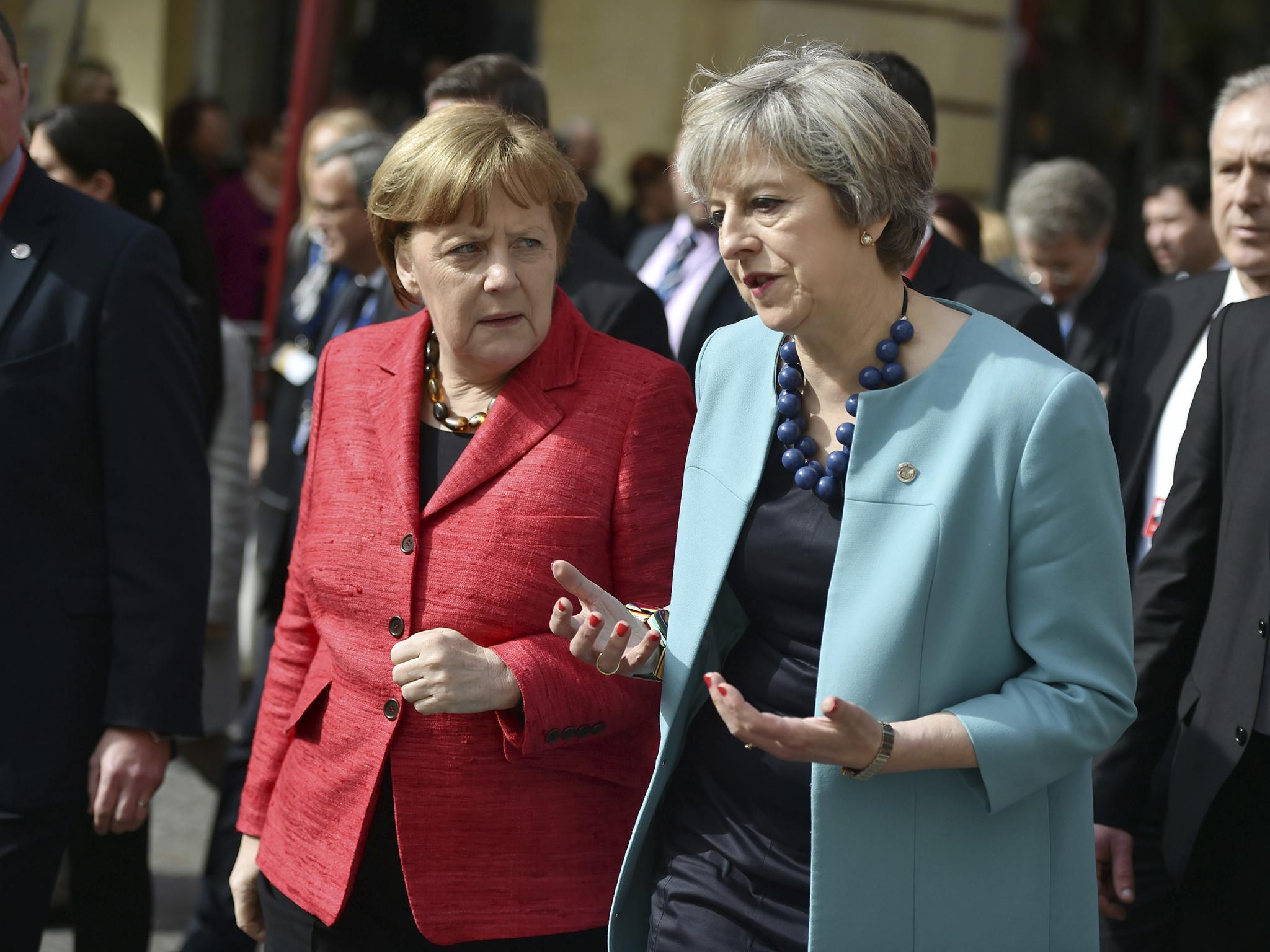Theresa May, just like her predecessors, will fail to bridge the gap between Europe and America
Why would they need the British Prime Minister, who is already excluded from the meetings in which they really decide things, to act as a communication channel with a US president who is fantastically unpopular with their voters?


They weren’t impressed by her offer to act as the bridge. Theresa May told the other European Union leaders at the summit in Malta that she had just seen the President at the White House and she had a message from him for them. He was totally supportive of Nato, but it would just clinch the deal if they could spend a bit more money on defence.
Yes, we saw that on TV, said François Hollande, under his breath. “Who knows what President Trump wants on Nato?” he said, out loud.
“I think that there is no necessity of bridges,” said Dalia Grybauskaite, the Lithuanian President. “Today we are communicating with the US mainly on Twitter.”
Tony Blair thought he could act as the bridge. We know how that worked out. He threw away the advantage of speaking French and of being, unlike his successors, genuinely keen on EU membership. He even wanted Britain to adopt the euro, and admired the EU so much he wanted to be its first president. But the Iraq war divided the Union between old and new, with Britain on the side of the new members who joined in 2004.
Gordon Brown didn’t pretend. He turned up late at the Lisbon Treaty signing in 2007, made his impatience with Euro summits clear and devoted his efforts to the global G20 effort to deal with the financial crisis. In that effort, the European Central Bank’s struggle to prop up the euro was an important, but non-British, subplot.
Then came David Cameron, who thought of himself as a Eurosceptic, but didn’t mean that kind of Eurosceptic – he just meant he had his doubts about some of the ways the EU did things. He thought he got on well with Barack Obama. He also thought he had a very good relationship with Angela Merkel, so he thought he could negotiate an emergency brake on immigration. That would win the referendum he had been forced to concede to people in his own party who really were Eurosceptics.
No one can remember what happened to him, but it probably didn’t end well.

Now Theresa May thinks she can be a bridge. The simultaneous translation in the summit headphones might have been: “I don’t get on with Donald Trump as well as Nigel Farage does, but you’d rather I was your go-between than him.”
It wasn’t an offer they couldn’t refuse. It was an offer they couldn’t understand. Why would they need the British Prime Minister, who is already excluded from the meetings in which they really decide things, to act as a communication channel with a US President who is fantastically unpopular with their voters? Just as they couldn’t understand May’s speech to Congressional Republicans in Pennsylvania. It was “a generous speech about the US, honouring its history, its values and its global role” and yet “she still hasn’t made any equivalent gesture to the peoples of Europe”.
That is not the complaint of some lefty Remoaner, but of Tim Montgomerie, the Conservative commentator. Montgomerie was one of May’s early cheerleaders. I cannot remember who coined the term “Mayniacs”, but it referred to people such as him back in the olden days when George Osborne was the leading contender to succeed Cameron.
But today he has written a furious blast demanding to know why May has been so tactically inept as to rush to see Trump and further alienate fellow European leaders. “After all, our negotiations with Europe are much more important to us, at least in the shortish term, than likely trade negotiations with Washington.”
It is a good question. I can understand the pragmatic argument for holding Trump’s hand. What is harder to grasp is why she hasn’t tried harder to hold out the hand of friendship – not so much to Europe’s leaders, who are understandably bruised by the rejection of their Euro-idealism – but to the peoples of the EU. Our national interest outside the EU depends on their friendship.
Join our commenting forum
Join thought-provoking conversations, follow other Independent readers and see their replies
Comments
Bookmark popover
Removed from bookmarks